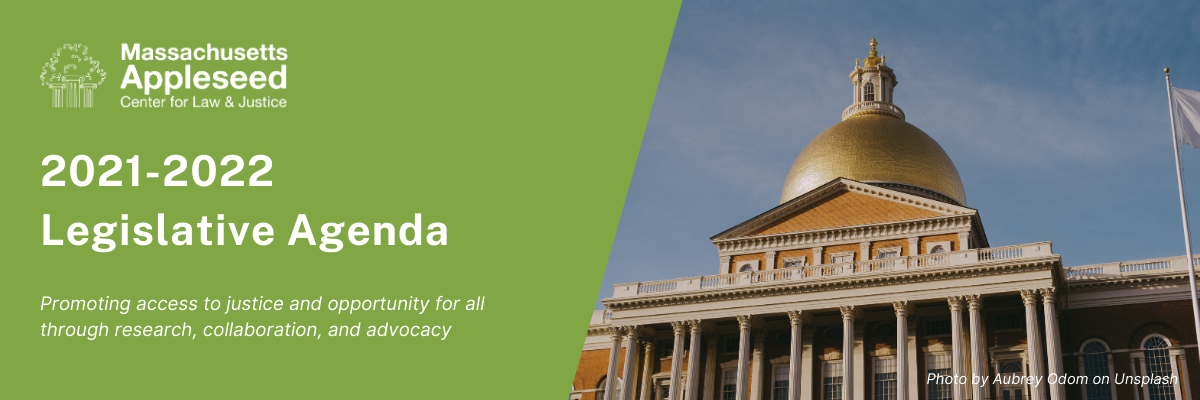On Monday, the Massachusetts House Committee on Ways and Means (HWM) released House Bill 4219, An Act relative to immediate COVID-19 recovery needs, a bill to allocate funds from the federal American Rescue Plan Act (ARPA) and surplus state funds from last fiscal year. Representatives had until yesterday afternoon to submit amendments to that proposal, and TOMORROW (Thursday), the full House of Representatives will be debating and voting on those amendments.
This is an unprecedented opportunity to advance social justice and right the systemic wrongs that have gone unaddressed for too long.
Please reach out to your State Representative NOW and ask them to include key funding initiatives in H.4219 that support students, youth experiencing homelessness, and renters facing eviction.
Amendments We Support:
Amendment #1031 “Mass ID”: Sponsored by Representative O’Day and Representative Khan, this amendment would allocate $200,000 to provide free Mass IDs to people experiencing homelessness, provide staffing resources to the Registry of Motor Vehicles to assist individuals experiencing homelessness to access Mass IDs, and track and report on the impact of the initiative. Removing barriers and easing the process for youth experiencing homelessness to obtain state ID is crucial for them to accomplish a host of everyday tasks and access services that require identification.
- The amendment would provide $78 million for a Housing and Eviction Representation Program to provide housing stability and homelessness prevention to those at risk of eviction. This program would make tenants and owner occupants whose incomes are below 80% of the Area Median Income eligible for free legal representation. Read our testimony in support of Right to Counsel here.
- The Right to High-Quality Education for All Students program would allocate funds to address barriers to fair, equitable, and high-quality education for low-income students across Massachusetts.
- Amendment #313 calls for an additional $10 million investment, for a total of $50 million, in youth and young adult employment. This investment would empower an estimated 10,000 young people with jobs and pathways to career success.
- Amendment #314 would add language into House Bill 4219 about how youth and young adults experiencing homelessness, particularly BIPOC and LGBTQ+ individuals, should be a major focus group of this funding. Click here for more information about these amendments from our advocacy partner Breaktime.
Time is of the essence. Please reach out to your State Representative to help us pass these amendments!
What You Can Do
- Contact your Representative TODAY and ask them to co-sponsor amendments #313, #314, #594, and #1031 to H.4219.
- Because elected officials get a lot of emails, follow-up with a phone call to ask whether your Representative will co-sponsor amendments #313, #314, #594, and #1031 to H.4219.
- Click here to find your Representative’s email and phone number.
The next 24 hours are critical so please contact your State Representative NOW.
Keep informed & stay involved!
Stay tuned for more opportunities to take action and support Massachusetts families and youth by liking us on Facebook and following us on Twitter! Check out our website for our most recent publications and action alerts.
To support our work, please consider giving a donation today.
Thank you for advancing social justice in Massachusetts!
Want to stay informed on the latest issues Massachusetts Appleseed is working on?
Sign up for our mailing list.


 When Kathy McGrath, the pro bono manager for Liberty Mutual’s legal department, heard about
When Kathy McGrath, the pro bono manager for Liberty Mutual’s legal department, heard about